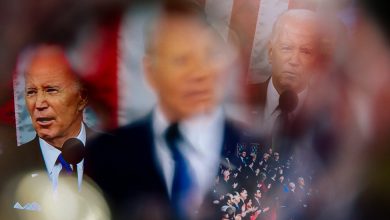Hundreds Have Left N.Y. Public Defender Offices Over Low Pay

Hundreds of staffers have left New York City’s public defender organizations over the past year, fed up with low pay, which they say undervalues their public service and puts them on an uneven footing with the prosecutors whom many of them face in court each day.
The Legal Aid Society, New York’s largest provider of criminal and civil services for indigent clients, has lost 10 percent of its staff, or about 200 people over the past 12 months, a 73 percent jump from the organization’s 2021 attrition rate. That number includes 55 public defenders who try criminal cases, 37 legal services attorneys who represent clients in housing and immigration court, as well as numerous paralegals, investigators and social workers.
Other defender organizations have even higher rates. Over the past year, Brooklyn Defender Services has lost 40 attorneys, or 27 percent of its staff; and the New York County Defender Services has lost 30 attorneys, or 24 percent of its staff. The Bronx Defenders has lost 18 attorneys, while the Queens Defenders has lost 17 attorneys.
The numerous departures have put additional strain on the lawyers who remain, raising concerns that clients will not receive the best representation possible, even as prosecutors and the police face political pressure to tamp down gun crime. The resignations continue a trend of experienced lawyers leaving the system as a whole.
“Budgets are values,” said Tina Luongo, chief attorney of the criminal defense practice at the Legal Aid Society. “If you’re worried about staffing N.Y.P.D. and staffing up corrections, but you’re not worried about staffing up the public defenders, you’ve got a value problem.”
The attrition rates — which mirror those at city prosecutors’ offices — come as these organizations meet with representatives from the mayor’s administration and City Council to ask for immediate aid, including $10 million for Legal Aid alone.
A spokesman for Mayor Eric Adams did not comment on the aid but said that they were in talks with the organizations. “Legal Aid lawyers and public defenders play a critical role in making the city more just for vulnerable communities,” the spokesman, Fabien Levy, said. “We are talking to providers as we negotiate the budget with the City Council.”
In 2019, Mayor Bill de Blasio pledged to raise the lawyers’ salaries to match those of attorneys on the municipal payroll who do commensurate work.
At Legal Aid’s criminal practice, first-year law graduates begin with about $74,000 a year, similar to other lawyers paid by the city; but after about five years, they often lag prosecutors and city lawyers by $10,000 or more. Meanwhile, first-year lawyers working for top New York firms can start at more than $200,000 annually.
That has driven more experienced lawyers to leave for jobs where they can make competitive salaries, a decision that many say has been difficult.
“We are choosing between a decent life and representing low-income clients and making sure that justice is served,” said Aissatou Barry, a housing lawyer with Legal Aid.
Ms. Barry, 34, was always drawn to public interest work. Growing up in Brooklyn’s Flatbush neighborhood, she saw the impacts of gentrification firsthand. But she makes $83,000 a year, is helping to support three other relatives who live with her and still owes more than $150,000 in student loans. She has had to pick up a second job teaching to keep up with her expenses.
“I’m really afraid for what my rent will look like soon,” she said. “It’s an untenable situation right now.”
While employees across a number of other industries also left their jobs during the pandemic, the attrition rates have been particularly high among those working in New York City’s court system. Hundreds of prosecutors departed in the past year, as did dozens of court-appointed panel attorneys who represent children and indigent adults.
Compared with other localities, New York has a robust and well-funded network of legal service organizations. The Legal Aid Society has an operating budget of about $350 million a year.
But the organization and its peers, which are funded primarily by the city and state government, have expenses that most other lawyers paid by the city do not have to worry about, including rent, health care, those tied to their collective bargaining agreements, as well as the services of investigators and process servers. Those costs, they say, along with the need to raise lawyer salaries, are outpacing the growth of their budget. And it has led them to not only call for additional funding, but also for renegotiating their contracts with the city.
Criminal defense lawyers working within such organizations have come under additional strain in recent months, after Mr. Adams requested New York City’s court system expedite gun possession cases. Those cases are often complicated, and public defenders say the new schedule makes it more difficult to ensure that clients receive fair treatment when a mistake or a missing piece of evidence could result in years behind bars.
While defenders would usually negotiate with prosecutors for a potential plea deal while simultaneously searching for evidence that might exculpate their clients, they now have scant time for either.
“With the courts putting this pressure on, and essentially valuing the process and efficiency over the constitutional rights of our clients, it’s just creating this ridiculous amount of pressure and it’s frankly unreasonable,” said Diana Nevins, 38, a public defender who works in Queens.
Alvin L. Bragg, the Manhattan district attorney, asked if he supported pay parity, said he did and added that “setting salaries at a level that allows lawyers to pursue and remain in public service is key to this office and public defenders. This is a matter of fundamental fairness.”
New laws governing the sharing of case-related material have also placed a heavier burden on defenders, who must now sort through hundreds of documents they receive from prosecutors in order to find relevant information and to ensure that prosecutors, who are required to submit all of the material, have met their obligations.
But public defenders say that the difficulty of their work would be far more bearable if they were compensated at the same rate as their peers.
“We’re just not being paid what we’re worth,” said Javionte Johnson, a 27-year-old public defender with the Neighborhood Defender Service of Harlem.
He said that it reflected political favoritism toward prosecutors, and said that he and his colleagues fought just as hard to make sure a fundamental tenet of the Constitution was upheld: that defendants are innocent until proven guilty.





